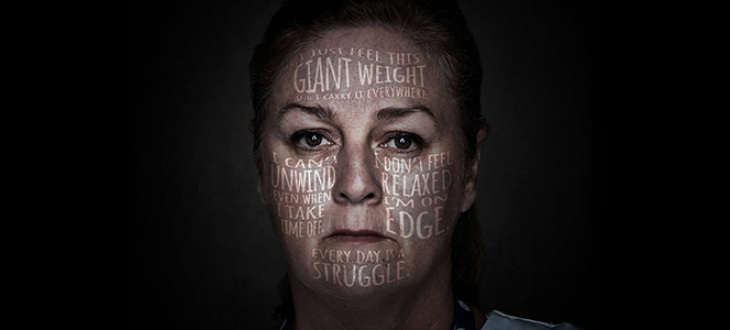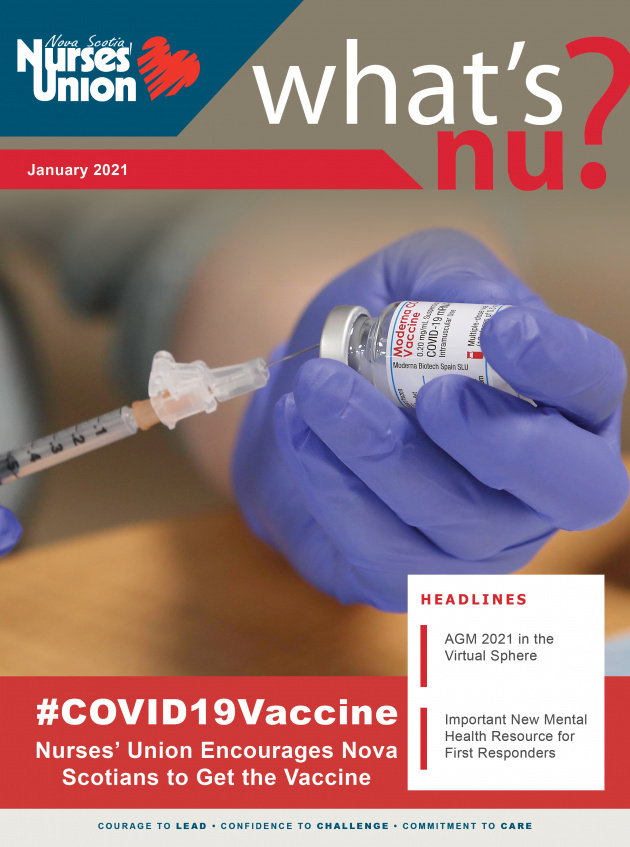A new online resource is available for first responders who are experiencing mental health distress.
First responders are exposed to trauma every day as an unavoidable part of their jobs. This puts them at higher risk of developing traumatic stress injuries like depression, anxiety and PTSD. The website was developed to help first responders access mental health support when they need it, understanding that mental health crises can happen at any time.
The website offers helpful tools and resources for first responders, their family members, employers, and colleagues who are dealing with mental health issues. Some resources include self-assessments, online counseling, training materials, and mental health apps.
This resource is a collaboration between labour unions, including the NSNU, first responders, emergency service employers, Government and the Workers’ Compensation Board (WCB). Learn more at firstrespondersmentalhealthns.com.
On December 5th, the Chronicle Herald published the following opinion/editorial piece by Janet Hazelton. Janet was very closely involved in the development and execution of the PTSD resources. Featured in the campaign are NSNU members Jamie Stewart and Tracy d’Entremont.
At Last, Fresh Hope for First Responders in Nova Scotia
By Janet Hazelton
I’ll never forget the first time a patient that I was caring for passed away.
I was just starting my nursing career – maybe a few weeks in. The family was devastated. And although I didn’t show it on my face, so was I. Over the short time we spent together, we had gotten to know each other. Swapped stories. Held hands. Shared our best jokes.
As someone who is rarely at a loss for words, at that moment I couldn’t speak. There was an incredibly large lump in my throat.
The nurse supervisor came in to help out. She could see I was having a tough time. Once we completed all the required duties, she pulled me aside and told me – in a very kind but firm way - to go take a ten-minute break, and then get back to work.
That’s how it was. That’s what we all did when something terrible happened at work. We took a few minutes to pull ourselves together, and then got on with it. We didn’t think about how witnessing all that trauma might one day take a toll on our mental health.
Over the course of my 30 plus years in nursing, I witnessed a lot of trauma. I was lucky. Some of my colleagues were not. Because for them, that trauma built up, and left them with psychological injuries that in some cases have derailed not just their careers, but their whole lives too.
I’ve heard many more stories about workplace trauma and psychological injuries from members during my time with NSNU. I’ve also worked with a lot of other first responder organizations, and I know that many people working across this sector have paid a high price for doing the important jobs that they do.
Thankfully, the ‘suck it up’ culture that used to define emergency service professions is beginning to change.
That’s because we know a lot more today about the impact of daily exposure to pain, death and sadness. We know about traumatic stress injuries like PTSD, and we have effective treatment approaches that are helping to manage the symptoms. Employers, unions, and the workers themselves better understand the risks, and are taking positive steps to protect mental health in the workplace.
But there are still a couple of key issues we need to address.
The first is timeliness. When a first responder is facing a mental health issue, they need to be able to access appropriate support and treatment quickly. The benchmark for access to mental health treatment in Nova Scotia is seven days for urgent cases and 28 days for non-urgent, but we’re not consistently meeting those standards. Workplace EFAP programs help, but they generally rely on the same pool of mental health professionals as everyone else. Adding the benefit of presumption for first responders diagnosed with PTSD has streamlined access to WCB benefits. And while that may mean first responders can still pay their bills if they’re injured, it doesn’t necessarily offer an expedited path to treatment.
The second issue is stigma. Shame and fear still surround workplace psychological injuries in our province. First responders are often ashamed to admit it when they have a mental health problem. Because in a job that’s all about being calm and professional in terrible situations, there’s no room for weakness.
Most first responders get into this line of work because they are natural heroes: they are the ones who run toward the fire. It’s not just a job, it’s who they are. And when mental health issues take them away from that work, it’s not just a loss of occupation, it’s a loss of identity.
We’re getting better at recognizing and supporting first responders’ mental health. But we still have work to do.
Over the past year or so, a group of first responders, employers, unions, the WCB and Government have been working together to address some of the gaps. It’s the first time that many of these organizations from fire, law enforcement, corrections, nursing and paramedics have ever worked together outside of an accident scene.
We’ve launched a new website for first responders, their families, and their employers. The website – FirstRespondersMentalHealthNS.com – features real Nova Scotia first responders, and links to online workplace mental health tools and resources such as self-assessments, online counseling, training materials, and mental health apps. It’s based on a similar best-practice program from British Columbia but has been customized to address the needs of first responders here in Nova Scotia. The group plans to keep working together to develop more supports.
Initiatives like this one offer hope for first responders. Hope that more Nova Scotians will come to understand the mental health challenges they face every day. Hope that online resources like this new website can help them manage their symptoms as an effective part of their overall treatment plans. And hope that all first responder organizations prioritize mental health and do all they can to provide an open and accepting work environment that fosters resilience and provides support.
Personally, my hope is that those on the front lines of tragedies, like the one I experienced years ago, will have a caring and compassionate network that welcomes them and carries them when they need help the most.
Showing Gratitude
WCB representatives expressed their gratitude to Janet Hazelton for her leadership and support of this new initiative. The following passages are excerpts from original correspondence:
I just wanted to send a note to thank you for your time and effort in support of the launch of the First Responders Website last week. As of today, the website promotional video in which you were interviewed has had more than a thousand views on YouTube. Your OpEd, which was featured in the Chronicle Herald print and online editions, delivered an honest and compelling message to thousands more, and will help many first responders and others find their way to the website and the mental health supports they need. It also demonstrates the continued leadership of the NSNU, toward raising awareness and taking steps to improve workplace mental health supports.
Shelley Rowan
VP Prevention and Service Delivery
WCB Nova Scotia
I’m writing today to tell you how proud I was to see the video featuring our own Janet Hazelton, and to read her opinion piece, as part of the launch of Share it, Don’t Wear it.
The building of this website has been collaborative with first responders and will have a positive impact on future outcomes. Janet was a key leader on the committee and her passion for what we do is on display here.
Janet: You are an amazing leader, always willing to step up on anything health and safety. Your personal dedication is inspiring, and your contribution here is remarkable. I’m so proud to call you a colleague.
Stuart MacLean
Chief Executive Officer
WCB Nova Scotia

 Login Members Only
Login Members Only


